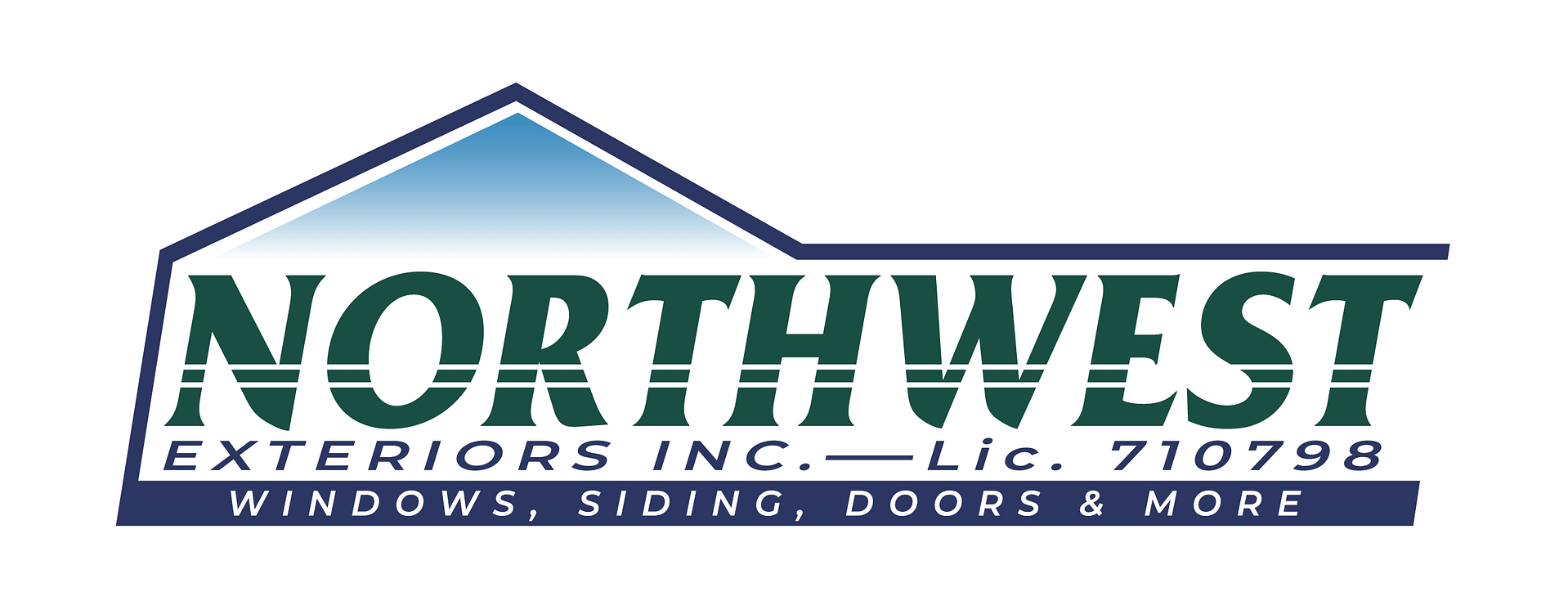
Essential Regular AC Maintenance Tips for Homeowners
Every homeowner is keenly aware that maintenance on the home’s major systems can not only save money on repairs but also preserve property value. Hiring an AC service technician to perform regular inspections and maintenance is a no-brainer and keeps your system healthy and operating on all cylinders. But in between these maintenance visits, you can take extra steps to help your system perform optimally all year round.
Keeping air conditioning systems running smoothly is key to comfort, especially during hot months. Regular AC maintenance is not just optional; it can prevent the need for emergency AC repair near you. This post will outline essential HVAC maintenance tips, including how to establish a routine maintenance schedule and the importance of changing air filters. By following these tips, readers will not only enhance their system’s performance but also enjoy better energy efficiency and customer service from their HVAC providers. Addressing these concerns can ultimately save homeowners time and money.
Understand the Importance of Regular AC Maintenance
Regular air conditioning maintenance is crucial for homeowners to identify common AC problems, recognize signs that maintenance is needed, and learn how upkeep impacts energy efficiency. This practice not only enhances the performance of central air conditioning units but also prolongs the life of vital components like the heat exchanger. Understanding these elements helps in reaping significant cost benefits by preventing costly repairs caused by dirt and neglect and reducing the likelihood of needing emergency AC repair.
Identify Common AC Problems to Prevent
Homeowners should be vigilant in identifying common air conditioning problems to maintain their HVAC system effectively. One prevalent issue is insufficient cool air production, which may indicate a clogged filter or refrigerant leak. Regularly checking and vacuuming the exterior units can prevent dirt buildup, allowing the system to function optimally and keep the home comfortable on hot days.
Another frequent concern is unusual noise coming from the central air unit. Sounds like grinding or rattling may denote loose components or failing parts that necessitate immediate attention. Catching these warning signs early can help homeowners avoid costly repairs and keep their HVAC system operating efficiently throughout the cooling season:
Recognize Signs That Maintenance Is Needed
Recognizing signs that maintenance is needed can help homeowners avoid unnecessary HVAC repair costs. One crucial indicator to watch for is excessive moisture around the evaporator or drain, which may suggest a leak or clogged drain line. Addressing these issues promptly not only prevents water damage but also confirms the air conditioning system operates efficiently.
Another clear signal for maintenance is a noticeable decrease in airflow or strange odors emanating from the unit, which can often relate to dirty air filters. Regularly changing or cleaning air filters maximizes airflow and improves indoor air quality, reducing the likelihood of system strain and expensive repairs. Homeowners should stay proactive in identifying these signs to keep their systems running smoothly.
Learn How Maintenance Impacts Efficiency
Regular maintenance plays a significant role in enhancing the efficiency of an air conditioning system. A clean air handler and clear filters are essential for optimal airflow, which keeps the cooling pump operating effectively. When airflow is unrestricted, the system requires less energy to maintain comfortable temperatures, ultimately leading to lower utility bills and a favorable impact on the home’s energy efficiency rating.
In addition to improved efficiency, routine maintenance can help identify minor issues before they escalate into larger, costly repairs. Homeowners should keep in mind that failing to address problems during troubleshooting can void warranties offered by manufacturers. By establishing a consistent maintenance schedule, homeowners can protect their investments and prolong the lifespan of their HVAC system, making sure it operates smoothly for years to come.
Discover the Cost Benefits of Regular Upkeep
Regular upkeep of air conditioning systems offers significant cost benefits for homeowners. By maintaining the condenser and making sure the thermostat operates correctly, homeowners can avoid costly repairs and inefficient energy usage. For example, a well-maintained unit can achieve Energy Star ratings, indicating optimal performance and lower utility bills, especially during peak usage periods.
Furthermore, addressing minor issues such as dirty filters or leaking pipes early on can prevent more serious complications with the furnace or other HVAC components. By investing in routine maintenance, homeowners can extend the lifespan of their systems, resulting in fewer replacements and a substantial reduction in long-term costs. This proactive approach not only enhances comfort but also safeguards financial resources.
Establish a Routine Maintenance Schedule
Setting a routine maintenance schedule is vital for effective air conditioner maintenance. Homeowners should implement reminders for filter replacements, plan seasonal checkups for their systems, and include cleaning tasks to minimize dust buildup. Keeping a maintenance log helps track services and is essential to prevent potential issues like water damage and making sure the heat pump or air conditioning system operates efficiently.
Set Reminders for Filter Replacements
Setting reminders for air filter replacements is essential for maintaining optimal airflow throughout the air conditioning system. Dirty or clogged air filters significantly hinder performance, leading to increased energy consumption and higher utility bills. Additionally, neglecting to change the filters can create an environment conducive to mold growth, which poses health risks for residents. Homeowners can choose to set a monthly reminder on their calendars or use apps designed for home maintenance so they do not overlook this critical task.
Incorporating foam filters can further enhance air quality by trapping finer particles, while heavy leaf debris around outdoor units can obstruct airflow. It is advisable for homeowners to check filters regularly and replace them as needed, typically every one to three months, depending on usage and environmental factors. Understanding these practices enables homeowners to keep their HVAC systems functioning efficiently while reducing potential health hazards associated with poor air quality.
Plan Seasonal Checkups for Your System
Planning seasonal checkups for the air conditioning system is an essential part of maintaining its efficiency and longevity. Homeowners should schedule these assessments before the hottest months so their units are functioning optimally. During these checkups, HVAC professionals often inspect ducts for blockages, apply lubricant to moving parts, and recommend the addition of spray foam insulation where necessary to improve energy retention in the home.
Incorporating a smart thermostat into the seasonal maintenance plan can enhance energy management and improve comfort levels. Setting specific reminders for these seasonal checkups allows homeowners to remain proactive and address potential issues before they escalate. Keeping track of system performance and adjustments made during these evaluations not only helps maintain comfort but also contributes to lower energy bills over time:
Incorporate Cleaning Tasks Into Your Schedule
Incorporating cleaning tasks into a routine maintenance schedule is essential for the optimal performance of an air conditioning machine. Regularly using a vacuum cleaner to remove dust and debris from around the unit keeps airflow unobstructed, which directly impacts indoor air quality. Homeowners should make it a habit to check for any dirt accumulation in and around the vents, as this can hinder the system’s effectiveness and cause excessive strain, leading to costly repairs.
Additionally, it is advisable to clean or replace air filters consistently to maintain a healthy indoor environment. Clogged filters not only decrease efficiency but also allow pollutants to circulate freely, impacting indoor air quality and comfort. By scheduling regular cleaning tasks and incorporating them as part of the HVAC upkeep strategy, homeowners can prevent issues and make sure their cooling systems serve them well, especially during high-demand periods.
Keep a Maintenance Log for Your Records
Keeping a maintenance log is a practical approach for homeowners to track their air conditioning system’s service history. This checklist can include details about when filters were changed, seasonal checkups were performed, and any notable repairs made. With this information readily available, it becomes easier to confirm all maintenance tasks are completed timely, contributing to energy conservation and optimal performance throughout the year.
Incorporating data like programmable thermostat adjustments and any inspections of copper piping can provide additional insights into the efficiency of the HVAC system. For instance, noting down the specific dates when ceiling vents were cleaned or adjusted allows homeowners to look back and assess their maintenance practices. This organized documentation not only helps identify patterns in system performance but also serves to highlight areas needing attention, providing an efficient and reliable air conditioning system.
Change and Clean Air Filters Regularly
Selecting the right type of filter for the HVAC unit is vital for optimal performance and energy efficiency. Homeowners should understand how often to replace filters to prevent mold and mildew buildup, while allowing proper airflow. Cleaning reusable filters correctly enhances indoor air quality and prolongs the lifespan of the system. These steps provide essential insights for maintaining a simple air conditioner efficiently.
Select the Right Type of Filter for Your System
Selecting the right type of air filter is essential for optimizing HVAC system efficiency. Homeowners should consider filters that match their specific system requirements, as well as their indoor environment. For example, households with pets or individuals with allergies may benefit from high-efficiency particulate air (HEPA) filters that capture finer particles, improving indoor air quality significantly.
A qualified technician can provide valuable insights on filter options compatible with a specific system. Regular maintenance of refrigerant levels is also critical; dirty or incorrect filters can lead to increased strain on the air conditioning unit. By maintaining proper airflow with the right filter, homeowners can enhance their system’s performance and reduce energy consumption over time.
Understand How Often to Replace Filters
Understanding how often to replace air filters is crucial for maintaining optimal performance in HVAC systems. Generally, homeowners should replace disposable air filters every one to three months, depending on the level of debris in the environment and the specific pressure needs of their system’s compressor. For households with pets or those located in areas with high pollution, more frequent replacements may be necessary so indoor air quality remains high and the system operates at its best efficiency.
Monitoring the minimum efficiency reporting value (MERV) rating of filters can also guide homeowners in their replacement schedule. Filters with a lower MERV rating may become clogged more quickly, leading to increased pressure on the system and potential flooding within the unit from improper drainage. Keeping track of filter replacements and inspecting their condition regularly helps avoid costly repairs and maintains efficient airflow throughout the home:
Clean Reusable Filters Properly
Cleaning reusable filters properly is essential for maximizing the efficiency of HVAC systems. Homeowners should remove the filter from the unit and use a soft brush to gently remove dust and debris. This method helps keep the filter performing optimally, allowing for better airflow and reducing the strain on the entire system.
For a thorough cleaning, rinsing the filter with water is recommended, followed by allowing it to dry completely before reinserting it. Consulting with an HVAC technician can provide further insights into maintaining reusable filters and when to clean them based on usage patterns. Following these simple practices can significantly contribute to the longevity and effectiveness of air conditioning systems.
Monitor Indoor Air Quality
Monitoring indoor air quality is an important part of maintaining a healthy home environment. Poor air quality can lead to various health issues, including respiratory problems and allergies. Homeowners should be aware of common pollutants such as dust, pet dander, and mold, which can accumulate in the air and impact overall well-being. Regularly replacing and cleaning air filters helps reduce these pollutants, making sure the air circulating within the home remains clean and safe.
In addition to changing filters, homeowners can utilize air quality monitors to track pollutants and humidity levels within their living spaces. These devices provide real-time data, allowing homeowners to take action when necessary, such as increasing ventilation or utilizing air purifiers. By understanding the factors affecting indoor air quality, homeowners can create a more comfortable and healthier environment for themselves and their families:
Keep the Outdoor Unit Free of Debris
Maintaining the outdoor unit of an air conditioning system is essential for optimal performance. Homeowners should regularly inspect for dirt or debris buildup, clear surrounding vegetation and obstacles, and know when to call a professional for thorough cleaning. Using the proper tools for maintenance tasks enhances the unit’s efficiency and secures a comfortable indoor environment.
Clear Surrounding Vegetation and Obstacles
Clearing surrounding vegetation and obstacles from the outdoor unit is essential for maintaining the efficiency of air conditioning systems. Homeowners should remove any leaves, branches, or debris that accumulate around the unit, as these can obstruct airflow and hinder performance. Keeping a three-foot clearance around the unit allows it to operate effectively for optimal cooling during hot weather.
Regularly trimming back shrubs and removing any nearby plants promotes better airflow and prevents overheating. Homeowners benefit from routinely inspecting the area surrounding their air conditioning unit to make sure nothing is obstructing its function. This simple practice not only enhances system performance but also contributes to lower energy bills by allowing the unit to run efficiently throughout the cooling season.
Regularly Inspect for Dirt or Debris Buildup
Regular inspections for dirt or debris buildup around the outdoor unit of an air conditioning system are crucial for maintaining optimal performance. Homeowners should routinely check for leaves, sticks, and other obstructions that can impair airflow, ultimately affecting the unit’s efficiency. Keeping the area clear enhances cooling capacity and helps prevent potential overheating, which can lead to costly repairs.
An effective approach is to establish a scheduled inspection every few weeks, particularly during fall when leaves tend to accumulate. By proactively addressing any buildup, homeowners can know their HVAC systems operate smoothly and maintain ideal indoor temperatures. This habit not only contributes to energy savings but also helps extend the lifespan of the air conditioning unit, providing long-term value for their investment.
Know When to Call a Professional for Cleaning
Homeowners should recognize when it’s necessary to seek professional help for cleaning the outdoor unit of their air conditioning system. If significant debris or dirt has accumulated and basic cleaning efforts do not yield results, a qualified HVAC technician can provide a thorough cleaning for optimal performance. An expert can also identify any underlying issues that may not be visible to the homeowner, leading to improved efficiency and longevity of the system.
Additionally, scheduling a professional service at least once a year can help prevent long-term damage caused by neglect. HVAC professionals possess the correct tools and knowledge to access hard-to-reach areas and perform a detailed cleaning that homeowners may overlook. Engaging a professional keeps the air conditioning unit functional and energy-efficient, ultimately enhancing the comfort and safety of the home.
Use Proper Tools for Maintenance Tasks
Using the right tools for maintaining the outdoor unit of an air conditioning system is vital for optimal performance. Homeowners can benefit significantly from having a basic toolkit that includes a vacuum cleaner for debris removal, a soft brush for gently cleaning sensitive components, and a garden hose for rinsing surfaces safely. These tools help maintain airflow around the unit and prevent damage, leading to improved efficiency and longevity.
Additionally, having appropriate safety equipment, such as gloves and eye protection, is essential when performing cleaning tasks. This not only protects homeowners during maintenance but also helps them handle proper tools responsibly. By using the right tools and safety gear, homeowners can efficiently keep their outdoor units clear of debris, enhancing the overall functionality and reliability of their air conditioning systems.
Schedule Professional HVAC Inspections Annually
Scheduling annual HVAC inspections is vital for homeowners so their air conditioning systems operate efficiently. This process involves selecting a reputable HVAC technician, understanding what to expect during maintenance visits, and requiring thorough checks of all components. Homeowners should also discuss any observed issues with the professionals to maximize the benefits of these inspections, ultimately prolonging the system’s lifespan and performance.
Select a Reputable HVAC Technician
Selecting a reputable HVAC technician is crucial for homeowners aiming to maintain their air conditioning systems effectively. Homeowners should look for technicians with valid licenses, certifications, and strong positive reviews from previous clients. This not only guarantees the technician possesses the necessary expertise but also provides peace of mind that the service will be conducted professionally and efficiently.
Additionally, homeowners can ask for recommendations from friends or family who have had positive experiences with HVAC professionals. Engaging a technician who is known for thorough inspections and transparent communication can enhance the overall maintenance experience. Taking the time to select the right HVAC technician ultimately leads to better care for the air conditioning system, helping it operate optimally throughout the hot seasons.
Understand What to Expect During Maintenance Visits
During maintenance visits, homeowners can expect HVAC technicians to perform a thorough inspection of the entire air conditioning system. This includes checking the refrigerant levels, inspecting electrical components, and testing the thermostat for proper operation. Homeowners should feel empowered to ask questions and gain insights into how to maximize the performance of their systems.
The technician will also likely provide recommendations for any necessary repairs or adjustments that can enhance system efficiency. By receiving expert advice, homeowners can address smaller issues before they develop into significant problems so their air conditioning units operate reliably throughout the hot seasons. Engaging in this proactive approach not only maintains comfort but can also lead to cost savings on energy bills over time.
Require Thorough Checks of Components
Requiring thorough checks of components during professional HVAC inspections helps the entire air conditioning system operate efficiently. Technicians typically evaluate vital parts such as refrigerant levels, electrical connections, and the overall functionality of the thermostat. Understanding the condition of these components allows homeowners to take proactive measures, preventing minor issues from escalating into major repairs.
Homeowners should emphasize the importance of a detailed inspection to their HVAC technician. Asking for a comprehensive assessment of fan motors, coils, and filters can lead to improved energy efficiency and reduced operating costs over time. By prioritizing regular inspections and making sure all components are thoroughly checked, homeowners can significantly extend the lifespan of their air conditioning systems.
Discuss Any Observed Issues With Professionals
During annual HVAC inspections, homeowners must explicitly communicate any issues they have observed with their air conditioning systems. Whether it involves unusual sounds, fluctuating temperatures, or persistent moisture, sharing these details can help technicians diagnose potential problems more effectively. Addressing these concerns not only improves the service quality but also contributes to a more thorough examination of the system, thereby enhancing overall efficiency.
Furthermore, discussing observed issues allows HVAC professionals to provide targeted recommendations tailored to the specific needs of the system. For example, if a homeowner notices a decrease in cooling performance, the technician can check for refrigerant leaks or airflow blockages. This proactive dialogue creates a collaborative approach so the air conditioning unit operates optimally and prolongs its lifespan.
Optimize System Performance for Energy Efficiency
For optimal energy efficiency in air conditioning systems, homeowners should consider several key measures. Learning about smart thermostats can significantly enhance temperature control and reduce energy usage. Additionally, evaluating potential upgrades can improve system performance, while sealing ducts prevents air loss and allows proper airflow. Furthermore, correct installation is vital for maximizing the effectiveness of the entire HVAC system.
Learn About Smart Thermostats for Efficiency
Smart thermostats play a vital role in enhancing the efficiency of HVAC systems. By allowing homeowners to set schedules and adjust temperatures remotely, these devices minimize energy consumption without sacrificing comfort. For example, when the home is unoccupied, the thermostat can automatically adjust to save energy, leading to noticeable reductions in monthly utility bills.
Moreover, smart thermostats often come equipped with features that monitor energy usage patterns, providing valuable insights for improved management. Homeowners can readily identify peak usage times and make necessary adjustments so the air conditioning system operates efficiently. By investing in a smart thermostat, individuals not only elevate their home comfort but also contribute to greater energy conservation within their HVAC systems.
Consider Upgrades to Enhance Performance
Homeowners seeking to enhance the performance of their air conditioning systems should consider upgrading to more efficient models. Newer units often incorporate advanced technology that improves energy utilization, such as variable speed compressors and higher SEER ratings. These features not only boost cooling efficiency but also lead to significant savings on utility bills over time.
In addition, integrating smart thermostats can transform how homes manage temperature control. These devices enable homeowners to monitor and adjust their HVAC systems remotely, optimizing usage based on personal schedules. By embracing these upgrades, homeowners can experience improved comfort levels while reducing their carbon footprint, making their living spaces more energy-efficient and environmentally friendly.
Seal Ducts to Prevent Air Loss
Sealing ducts effectively plays a significant role in preventing air loss, which enhances the overall energy efficiency of an HVAC system. When ducts are improperly sealed or have noticeable gaps, cooled air escapes, leading to increased energy consumption as the system works harder to maintain desired indoor temperatures. Homeowners should consider conducting regular inspections to check all connections and joints are secure, ultimately reducing energy bills and promoting a more comfortable living environment.
Investing in proper duct sealing techniques can yield substantial long-term benefits for homeowners. For example, the use of mastic sealant or specialized tape can provide an effective barrier against leaks, preventing cooled air from escaping into unconditioned spaces. By prioritizing duct sealing, homeowners not only enhance their air conditioning system’s efficiency but also contribute to improved indoor air quality, creating a healthier atmosphere for their families.
Demand Proper Installation for Effectiveness
Proper installation of air conditioning systems is critical for long-term efficiency and effectiveness. When an HVAC unit is installed correctly, it operates smoothly, minimizing energy consumption and preventing premature breakdowns. Homeowners should consider hiring qualified professionals to install their systems, as this provides assurance that all components are set up according to industry standards and manufacturer specifications.






